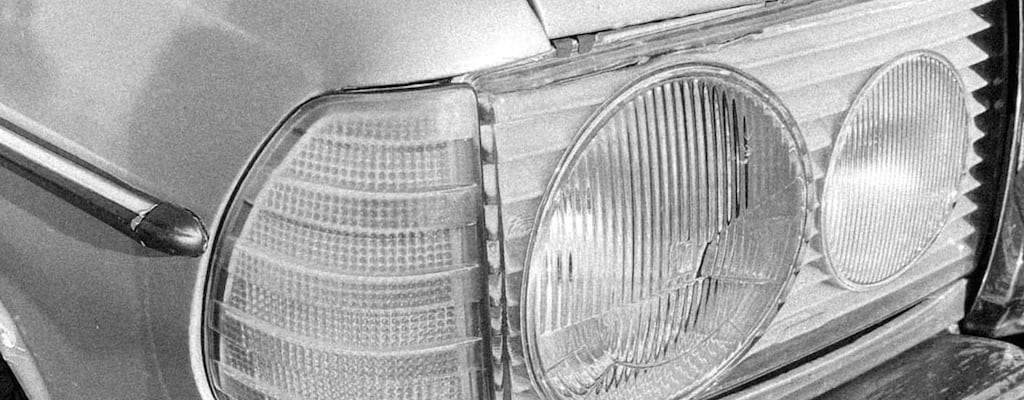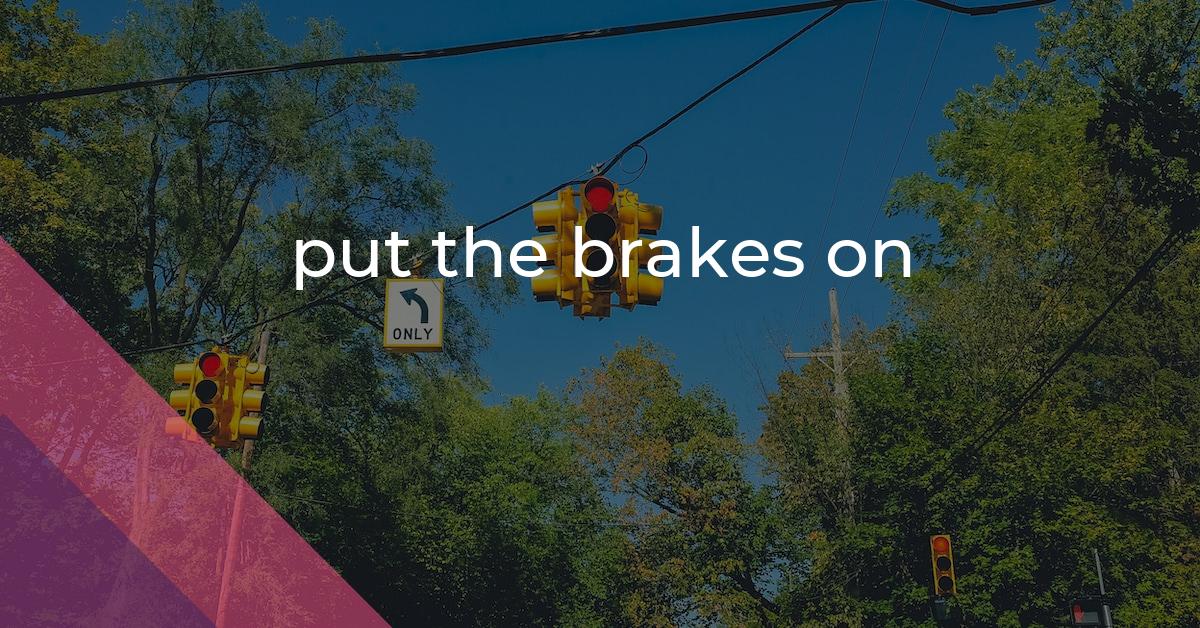put the brakes on: Idiom Meaning and Origin
What does ‘put the brakes on’ mean?
The idiom "put the brakes on" means to slow down or stop a process or action. It is often used to describe taking measures to control or limit something that is happening too quickly or becoming out of control.

Idiom Explorer
"Save it" is an idiom that means to stop talking or expressing an opinion, usually because the speaker's point is not wanted or considered relevant by the listener.
The idiom "run into the ground" means to exhaust or use up completely, often through overuse or mismanagement.
The idiom "red light" means to stop or prohibit something, often due to a warning or restriction. It can refer to a literal traffic signal or be used metaphorically to indicate the need to cease an action or behavior.
The idiom "put paid to" means to end or finish something, especially in a decisive or final manner.
The idiom "put back" means to return something to its original place or position. It can also mean to delay or reschedule an event or activity.
The idiom "put a sock in it" means to tell someone to be quiet or to stop talking, usually because they are being annoying or loud.
The idiom "put an end to" means to bring something to a conclusion or stop it completely.
Hidden Power Unleashed
Put the brakes on is a commonly used idiom in American English that originated from the idea of slowing down or stopping a vehicle by applying the brakes. However, its metaphorical usage goes beyond the literal meaning and is often used to convey the idea of slowing down, stopping, or preventing something from happening or progressing. This idiom emphasizes the need for caution, careful consideration, and evaluation in various situations.
When we use the expression put the brakes on, it serves as a reminder to pause and assess a situation before moving forward. In a fast-paced society like the United States, where time is often considered a valuable resource, this idiom highlights the importance of taking a deliberate approach. Sometimes, it is necessary to put a stop to our actions or plans in order to make more informed decisions or avoid potential problems.
Putting the brakes on can be seen as an act of control and self-regulation. Just as a driver slows down or stops a car by applying the brakes, we exercise control over our actions. This demonstrates self-discipline and the conscious decision to restrain ourselves or limit our actions in order to prevent negative consequences.
Additionally, this idiom can also describe situations where external factors or circumstances require us to slow down or stop what we are doing. When faced with obstacles or setbacks, it may be necessary to put the brakes on our plans or projects in order to reassess and find alternative solutions. This reflects the importance of adaptability and flexibility in the face of challenges.
The idiom put the brakes on is used in both formal and informal contexts, making it a versatile phrase. It can be applied to personal situations, such as relationships or personal goals, as well as professional situations, such as work projects or business decisions. This versatility allows for the concise and relatable expression of the concept of slowing down or stopping.
Related idioms that convey similar concepts include put a stop to, put an end to, and put a damper on. Just as put the brakes on suggests slowing down or stopping, put a stop to emphasizes the act of ending or ceasing something. It is often used when there is a need to halt a particular action or behavior.
Similarly, put an end to signifies the act of bringing something to a conclusion or termination. It is used when there is a need to bring about finality or closure. By putting an end to something, we ensure that it no longer continues or progresses.
Lastly, put a damper on describes the act of suppressing or dampening enthusiasm, excitement, or progress. It is used when something or someone hinders or discourages the positive momentum of an event or situation. Putting a damper on something implies the presence of a hindrance or setback.
To put it simply, these idioms, including put the brakes on, share a common theme of slowing down, stopping, or preventing something from happening or progressing. They serve as reminders to assess, evaluate, and exercise control over our actions. Whether it is about taking a moment to think, ending a certain behavior, bringing about closure, or facing obstacles with adaptability, these idioms offer versatile ways to express the idea of caution, control, and evaluation in various situations.
Put the brakes on is a deeply ingrained idiom in American English and has evolved to become a valuable tool for expressing a range of concepts. As language continues to evolve, it is fascinating to consider how idioms like put the brakes on may continue to adapt and take on new meanings in the future.
Example usage
Examples of how the idiom "put the brakes on" can be used in a sentence:
- She realized she was spending too much money and decided to put the brakes on her shopping habit.
- The company had to put the brakes on their expansion plans due to a sudden decrease in revenue.
- He was driving too fast, so I had to put the brakes on by telling him to slow down.
More "Transportation" idioms



